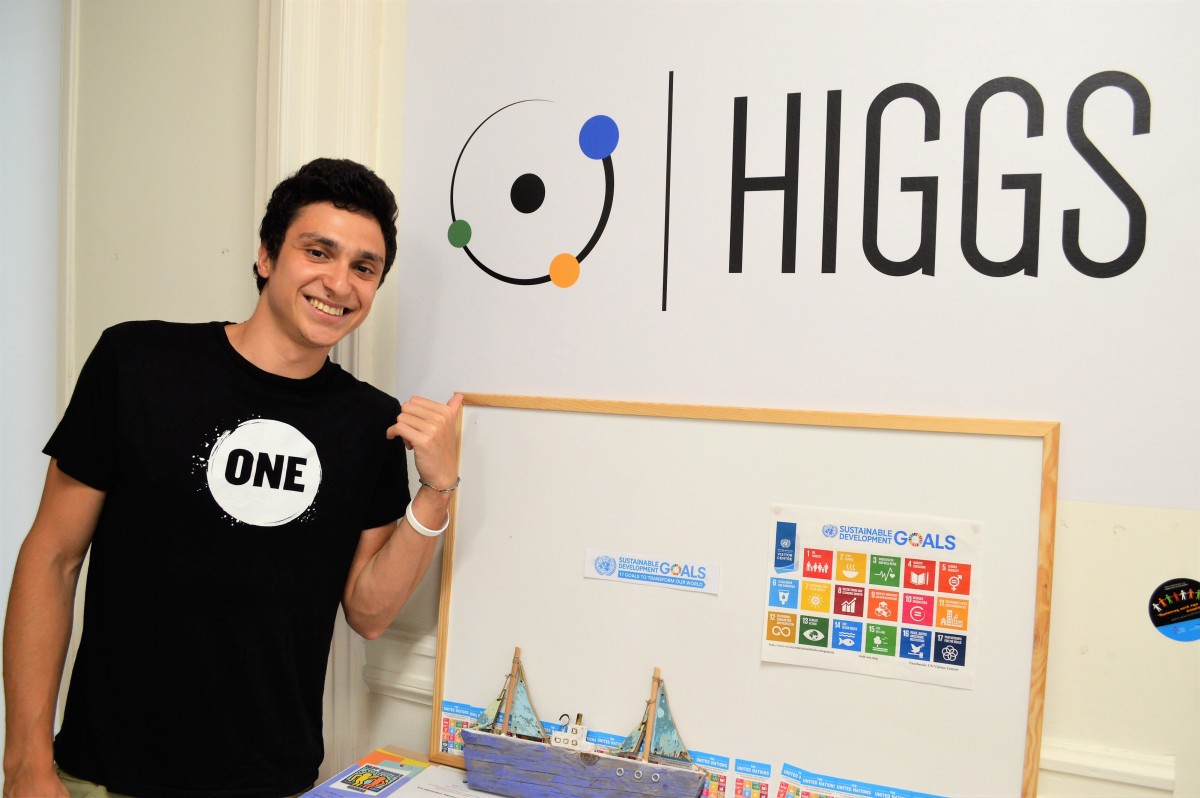
Around Exarchia square in 80 days
When I first came to Athens, I came across a breathtaking view of the Akropoli from the Monastiraki square. Walking through the neighborhoods of Thissio, Plaka, Psiri, full of tourists, shops and restaurants, I thought that the crisis was only a nightmare from the past. When I looked around the corner, I saw a different view of the city of Athens, not a representative one, but a real one too. Homeless, groups of refugees, empty shops, abandoned houses and a sensation of degradation and desolation are at 2 metres from the high-fashion stores. Victoria square and Exarchia, where I lived, are the extreme cases of this face of Athens. In these places, the consequences of a deep economic and social crisis that still affects Greece and the refugees problem are evident. There are currently nearly fifteen thousand refugees in the city, with almost no hope of a positive future, at least for the moment, as borders into the rest of Europe are closed. The data clearly supports the fact that Greece is taking a major brunt of the migrant and refugee crisis even though it is facing an unemployment rate around 25% and hugely austerity measures. Of all the countries in Europe, Greece is the one whose people have every right to be exhausted and selfish.
However, one of the ironic and most beautiful outcomes of the crisis is the way in which both Greeks and refugees have been helping each other to get through it. For example, thanks to the local and international volunteers and place such as City Plaza or Khora Community, hundreds of refugees and homeless can find a comfortable bed, a healthy meal and clean clothes. There is never enough accommodation available in the city. Many people sleep on the streets, homelessness is already a general problem in Athens. Many camps have bad conditions, and out in the middle of nowhere, with little access to services and resources. Reportedly, 30% of buildings in Athens are empty. For these reasons, there is an active squatting movement in Athens. Self-organized groups have stepped into the breach where the government does not provide enough housing. A number of large disused buildings are squatted in the city: abandoned schools, hospitals, hotels, offering housing to around 3000 people. As a result, Exarchia and its square have become a meeting place for refugees, homeless, Greek young people and international volunteers. In a walk around the square, you can meet people from more than 30 countries, sharing stories and different cultures having a beer or a souvlaki.
Coming to Greece for my internship placement at HIGGS, at the center of Athens, I also had the opportunity to spend my last 75 days volunteering at Khora Community center in Athens. Khora is a renovated eight floors building offering an essential array of resources to refugees in the city. Since the first time, I felt it was such an exciting project in an incredible space. It is a vibrant, dynamic, well-used space, with people from many different places working and sharing together, and a project that I am proud to be part of, even for a short period, as my internship came to an end. They do not work hierarchically. No one is in charge and everybody shares the responsibility to running the project. Working groups for different areas of the Centre feed into a weekly meeting, and we use a consensus decision making model. Around 800 meals are served every day, cooked by different chefs through the week, with a mixture of Syrian, Afghani, Balochi, Greek and western food. Daily language classes are in Greek, English, French, German, Spanish, Arabic and Farsi. There are 3 volunteer dentists working in a registered dental clinic, where children from the camps around Athens can go to on Tuesday and Thursday. There are lawyers offering legal appointments and support with asylum interview preparation; a safe space for women and a creative play area for children; and generally somewhere for people to hang out during the day with warm tea, wi-fi and company.
I usually helped in the free shop, where people can come and have the time and space to select the clothes that they need and take hygiene products with dignity. I am not a psychologist and neither a physician or an Arabic or a Farsi speaker. I am a human being just like the millions of refugees from Syria, Afghanistan, and Iraq, Kurdistan, Pakistan, Somalia, Eritrea, Mali, etc., that are now displaced in Greece. Some of their needs are quite simple: a hot meal, fresh clothing, a clean toilet, a listening ear. We can serve a meal, donate used clothes, scrub a bathroom, or listen to people’s stories. When people tell me about their former lives, I can see the unburdening, and I share with them stories of my student life to steal a sunrise from their faces.
Mohammad, 23 years-old, is just one of the many individuals I met during my voluntary work at Khora. He told me that after his graduation in economics at Kabul University, he started to work for the government. He had a good salary, a house with garden where the parents could live too and a car, but he was forced to leave because of repeated explosions in the area and the intimidation from the Taliban because of his governmental work position. I learned a lot about his struggles and his journey so far. He even explained Afghan culture and history to me, and I really enjoyed listening to him and learning about things I had never experienced. Along with Mohammad, every person I met during my week in Greece taught me something in some way. Volunteer service reminds me of how truly amazing we humans could be.
I would encourage all individuals who hold negative views about refugees to go out and interact with them to understand that the Syrian people are not the terrorists; the refugees are not the terrorists. We usually hang out in our own little worlds, dealing for the most part with people who share our habits, beliefs, and attitudes. This kind of experience could help us to open our horizon, improve our self-understanding, learn languages and discover new cultures and way of life. Being a volunteer does not only mean helping the refugees during the service. We should spread the stories of these people at home, because if you know the story behind the men, women and kids, they became real human beings. They became your friends. Have you ever refused to open your home to your friends?
Edoardo Di Loreto
Student at the Faculty of Political Science at the University of Bologna & intern at HIGGS

